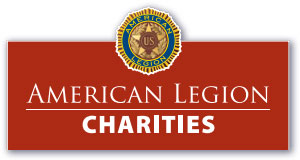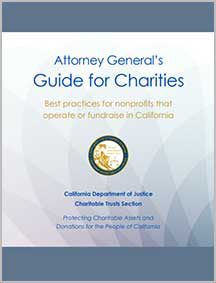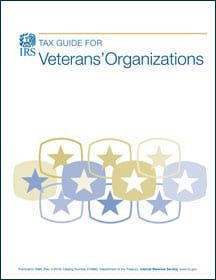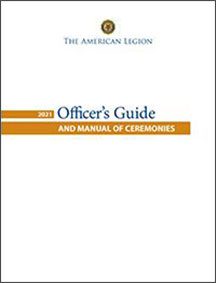Financial Resources
The Post Finance Officer is one of the three required leaders in a post. Their leadership is key to the long-term success of a post. The information and resources on this page are provided to help guide Post Finance Officers to improve their job performance in this important aspect of post operations.
The American Legion Officers Guide describes the finance officer as:
Finance officer
The finance officer should be honest and have experience in handling financial affairs. The post depends on fiduciary integrity and should acquire expert advice in formulating and administering its financial policy. The finance officer usually serves as the chair of the finance committee and is in charge of all receiving and disbursing of post funds. The post adjutant, in all matters relating to finance, should carry on the work in close correlation with the finance officer. Post accounting forms assist in meeting the requirements of American Legion posts in maintaining a correct and permanent membership and finance record. No special knowledge of bookkeeping or accounting is required. Be prompt in remitting national and department per capita fees and cards to department headquarters. It is essential the finance officer maintain accurate financial records for all post operations and activities.
“National Headquarters Estate Planning and Charitable Giving”
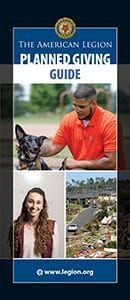 The American Legion, with nearly 2 million members, serves the nation as one of the largest charitable organizations in the world. The founders of The American Legion established the Four Pillars, which created opportunities for members to improve the quality of lives for millions of veterans and their families through various charitable giving programs established since the Legion’s founding in 1919. American Legion programs not only enhance the quality of lives for members but also provide medical assistance for children and youth, fund scholarships for the children of veterans, build character in participants of American Legion Boys Nation and Boys State, develop leaders in American Legion Baseball, and supply resources for wounded veterans.”
The American Legion, with nearly 2 million members, serves the nation as one of the largest charitable organizations in the world. The founders of The American Legion established the Four Pillars, which created opportunities for members to improve the quality of lives for millions of veterans and their families through various charitable giving programs established since the Legion’s founding in 1919. American Legion programs not only enhance the quality of lives for members but also provide medical assistance for children and youth, fund scholarships for the children of veterans, build character in participants of American Legion Boys Nation and Boys State, develop leaders in American Legion Baseball, and supply resources for wounded veterans.”
Administrative Compliance with Government Agencies
California Association of Nonprofits
Nonprofit Compliance Checklist
The IRS, California Secretary of State, California Franchise Tax Board and California Attorney General have ongoing mandatory reporting requirements that nonprofits must meet. Maintaining a post’s nonprofit status is an important part of the administrative compliance a post leaders must maintain every year.
Fiduciary Duties Matter
by Autrey James
 To achieve long-term success in our post, it is critical to ensure that our post finances are transparent to all our members, that we use generally accepted accounting practices to ensure continuity in the post financial records and we always meet our fiduciary obligations to the post corporation. The fiduciary duty encompasses three specific obligations or duties that officers owe the corporation. Fiduciary Duties Matter and they include:
To achieve long-term success in our post, it is critical to ensure that our post finances are transparent to all our members, that we use generally accepted accounting practices to ensure continuity in the post financial records and we always meet our fiduciary obligations to the post corporation. The fiduciary duty encompasses three specific obligations or duties that officers owe the corporation. Fiduciary Duties Matter and they include:
- The duty of care
- The duty of loyalty, and
- The duty to avoid self-dealing transactions
Duty of Care
In the case of post finances, the duty of care means that you follow the rules of the corporation which are laid out in the Constitution, bylaws and Articles of Incorporation. However even if the rules don’t specify in the case of operating a business the use of generally accepted accounting practices can be viewed as the minimum standard of care in your post. If you are not familiar with the standard, I refer you to page 13 of the “Post Operations Manual and Post Building Guide” available at:
This publication will give you a good start on how to lay out your post accounts in a way that is easy to understand.
Duty of Loyalty
The duty of loyalty means that you do not put your own interest ahead of what’s best for the post. It may be easy for the individual keeping post accounts to simply balance the checking account and call it a day. However, this does not give the post members a true accounting of assets and liabilities or the financial stability of the post. Therefore, it is in the best interest of the post to create and adopt a budget and stick to the budget or modify it if needed.
The duty to avoid self-dealing transactions
The final piece of the puzzle is to avoid self-dealing transactions. A self-dealing transaction in one in which a decision maker stands to benefit from usually financially. Make sure that every expenditure is authorized according to the guidelines in the post constitution and bylaws. Make sure that prior to authorizing an expenditure that the decision makers are fully informed about details of any proposed expenditures, and that decision maker who is in the position to benefit from the transaction recuses him or herself from the decision involving the transaction.
Hopefully if you keep these duties in mind it will make your service to veterans, the community, state, and our nation a little easier and will help to ensure your post succeeds over the next 100 years.
Alcoholic Beverage Control (ABC)
https://www.abc.ca.gov/
ABC Training
“Fostering Public Health & Safety Through Training”
“A major part of our vision is to protect California communities through educating licensees and the public at large on health and safety information related to the alcoholic beverage industry.”
-
-
-
- Licensee Education
- Register for LEAD (Licensee/Server Training)
- Responsible Beverage Service (RBS) Training
RBS training deadline is August 31 - Cannabis & Alcohol
- Industry Advisories
- Purchase a copy of the 2019 ABC Act online at Lexis Nexis.
-
-
Lounge Operations – Robert Carolan, 2014 Judge Advocate
“The Post bar MUST be under the control and direction of the Post; not the House Committee, not the Bar Committee, nor any other committee designated to oversee this operation. It is the responsibility of the Post Executive Committee to control all bar operations. The appointed permanent or temporary committees for bar operations simply administer the Executive Committees’ directives. If a liquor license is involved, strict adherence to liquor laws must be obeyed. Bartenders must be trained on how to handle customers including non-member customers. But above all else, Bar Regulations MUST be formulated by the Executive Committee and POSTED in the bar areas. This is the business part of the Post operation and is simply an exercise of common sense. Not every post has a lounge operations, those that due must be extra vigilant on how their lounge is operated. Too many times the improper management of a post lounge contributes to the loss of membership and the eventual loss of the post.”
Post Financial Resources
“Legion Charities” Can Help With Donations
Use “Legion Charities” for your fundraising efforts”
Getting donors to make large donations to your post can be a challenge because many big donors will only make donations to nonprofits classified by the IRS as 501(c)(3) and most American Legion Posts are classified as a 501(c)(19). One way to deal with this potential obstacle to large donations being made to your post is using “Legion Charities.”
In the December 2019 edition of the California Legionnaire is an article written by Autrey James, Junior Past Department Commander, which states:
“Legion Charities is a 501(c)(3) that was formed by the National American Legion Organization to help post deal with donations. This does not cost your post anything.
One hundred percent of the money donated to your post through Legion Charities is returned to your post.
The requirements are very simple; two post officers are required to sign a three-party indemnity agreement between the post, The American Legion and American Legion Charities
The need for the agreement is the requirement that the post must follow any instructions accompanying any gift so that American Legion Charities and The American Legion will not be involved in litigation over said instructions.
Once the agreement is fully executed and a fully signed copy returned to the post, the post can begin soliciting donations through the American Legion Charities.
The agreement must be renewed each year. The donations must be made out to American Legion Charities and must identify the post when they are received so that American Legion Charities may properly remit.
Finally, the donation must be for $1,000 or more.”
Guidelines for Cash Internal Control
Robert Carolan
Department Judge Advocate
California Legionnaire, February 2014
 Control your cash and you control your Post. But these common sense Guidelines also cover Districts, Councils, Areas and Department. They protect BOTH the Post on the one hand and the volunteers/employees who handle monies in the Post on the other hand. They cover all sizes of Posts and are really “no brainers”.
Control your cash and you control your Post. But these common sense Guidelines also cover Districts, Councils, Areas and Department. They protect BOTH the Post on the one hand and the volunteers/employees who handle monies in the Post on the other hand. They cover all sizes of Posts and are really “no brainers”.
To begin Internal Control over your Post I will designate certain officers to perform a particular task, but remember the officers can be substituted if it presents any particular burden on the Post. But the tasks assigned are very simple.
Bank Accounts General
- The Executive Committee ONLY must establish all bank accounts and credit card and debit card accounts.
- Designated volunteers/employees must be authorized ONLY by the Executive Committee to handle monies including check handling and deposits.
- Designated volunteers/employees must be authorized ONLY by the Executive Committee to sign checks and/or have the use of credit cards.
Budgets
Budgeting: A Guide for Small Nonprofit Organizations
 Budgets are important tools for managing your post’s finances. They can, unfortunately, be overlooked and often not well understood.
Budgets are important tools for managing your post’s finances. They can, unfortunately, be overlooked and often not well understood.
Annual Post Budgets
Annual post budgets provide a guide for the current year’s finances. Your after-budget analysis becomes critical to the success of your next year’s budget.
Event-Based Budgets
Just a good business tool. Events need budgets to help determine the value of the event and for analysis for future events. If an event costs the post money, the post leadership should know. Without a budget, how can you tell?
When accounting for donated items in your budget, enter the value of the donated item as an expense and income amount. This will have a zero-dollar impact on the final budget but will account for the donated item.
Budgeting: A Guide for Small Nonprofit Organizations, published by the Virginia Society of Certified Public Accountants is a good, but simple (8 pages) resource on the topic of budgeting.



 Budgets
Budgets